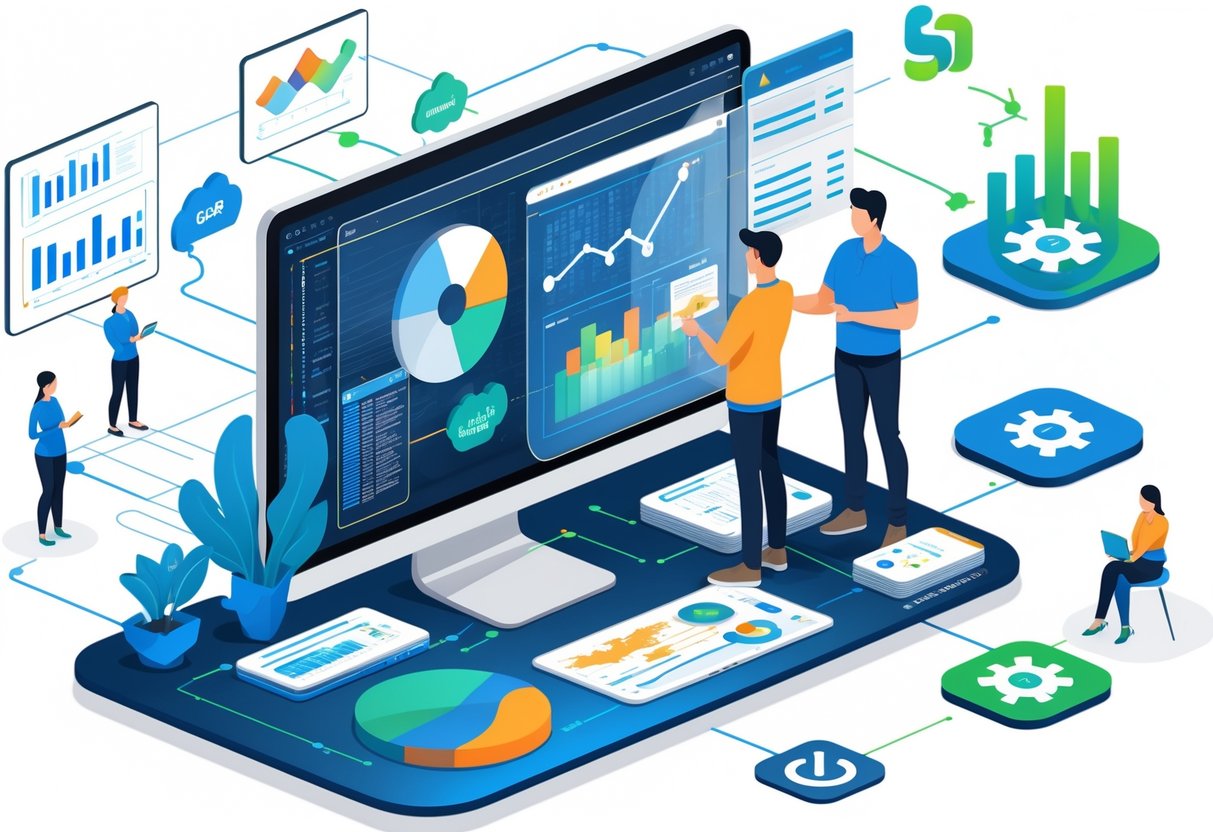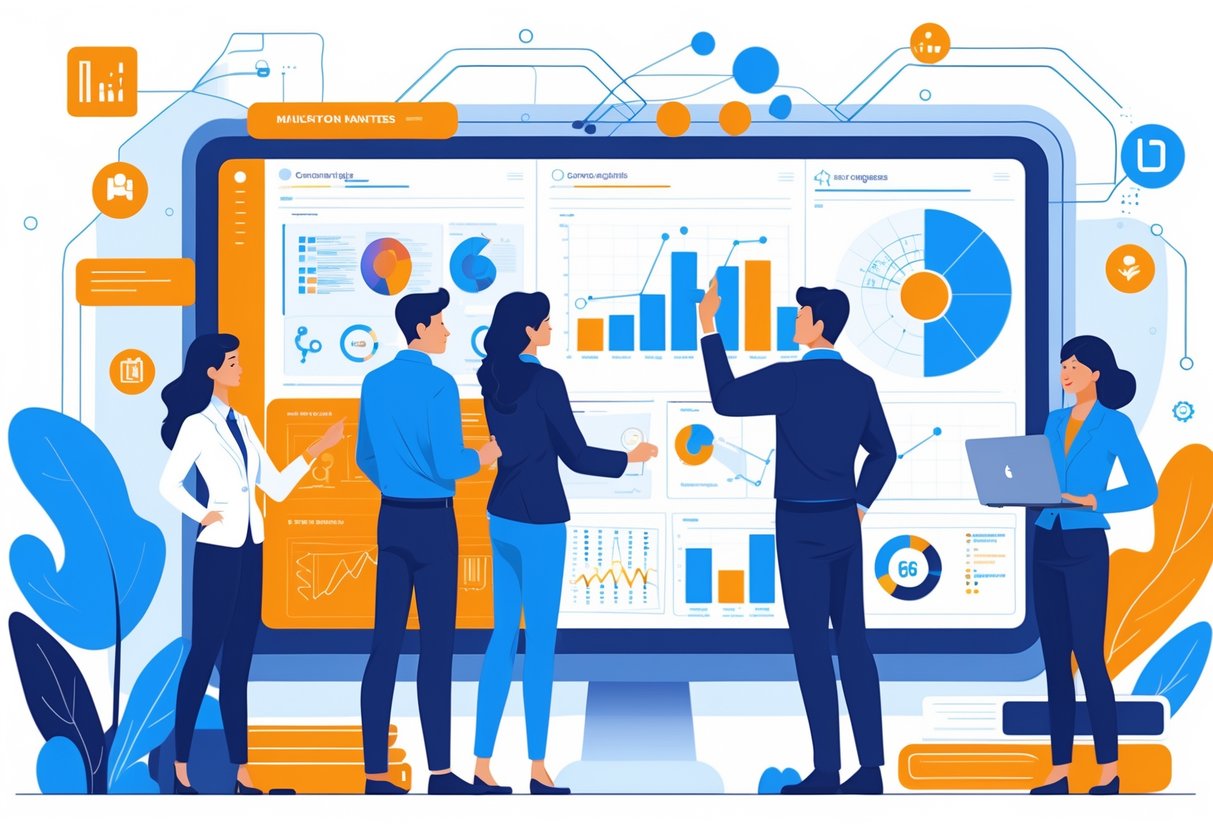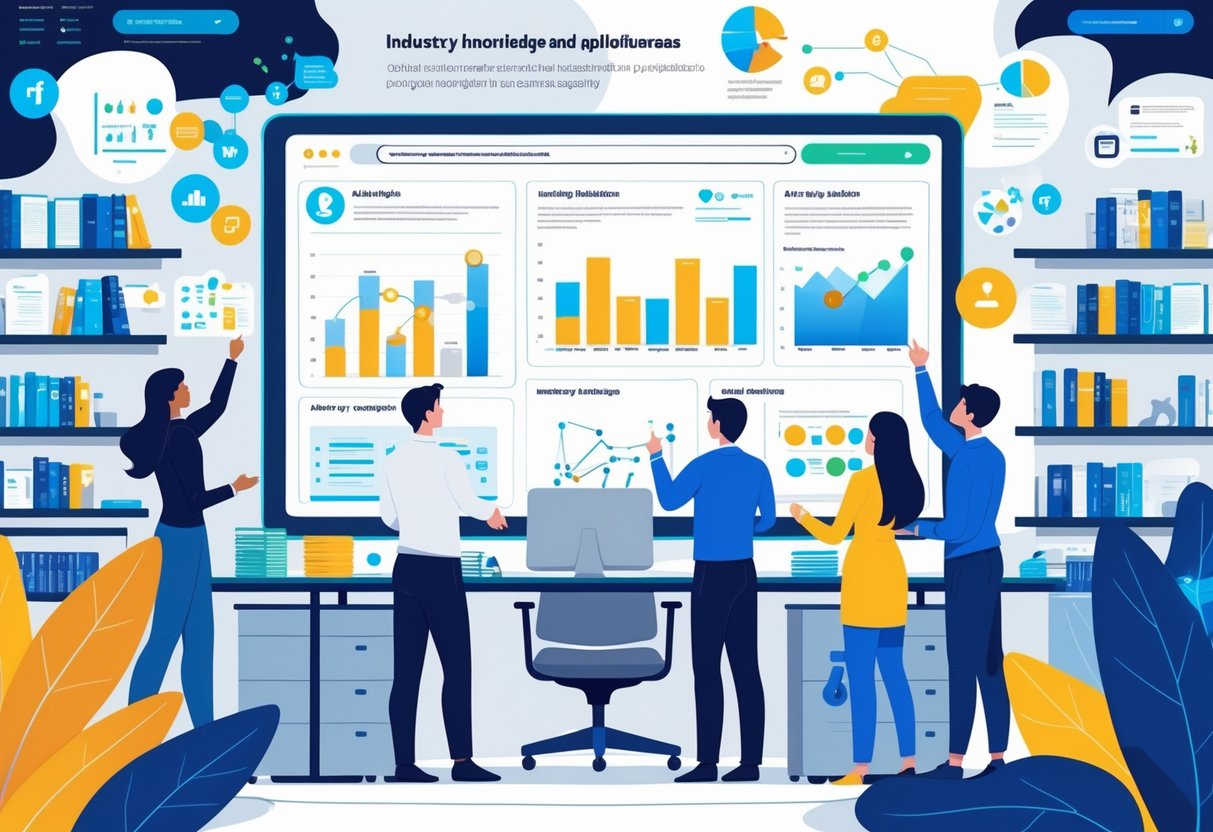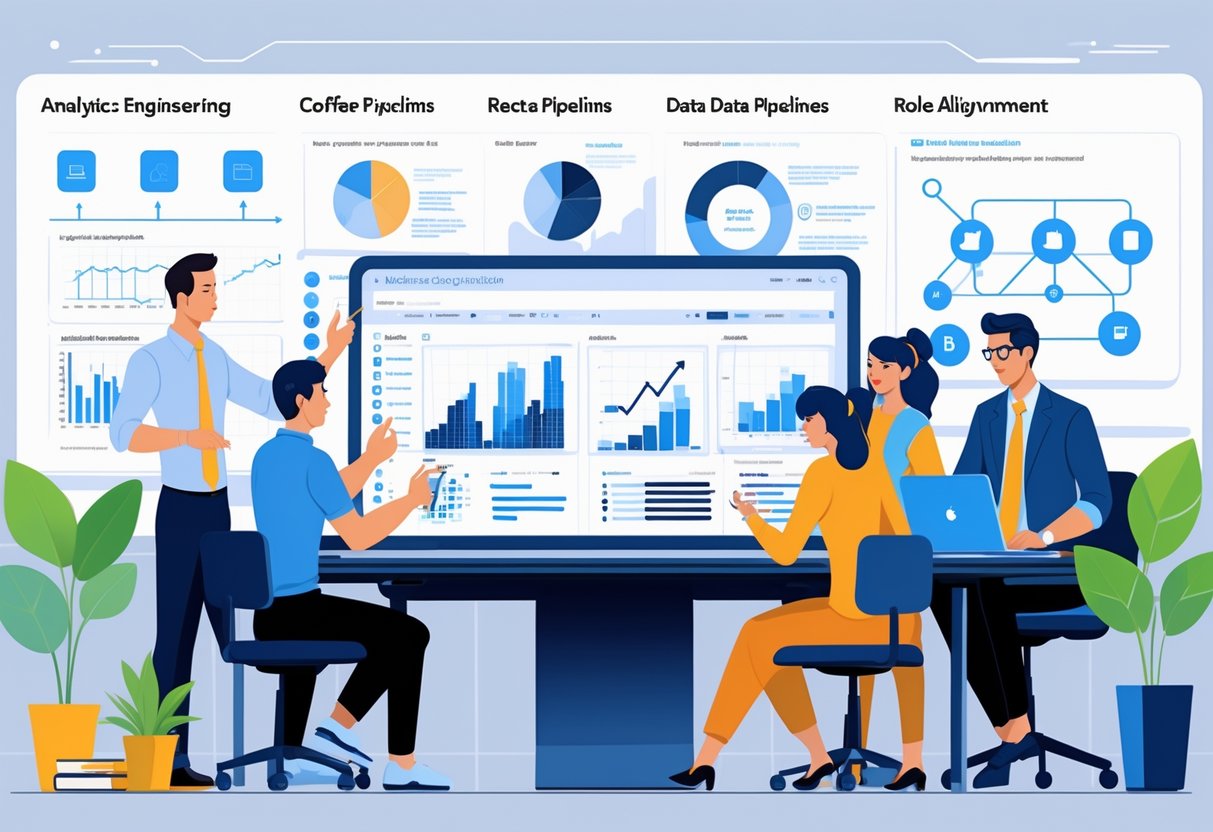Analytics engineering has become one of the fastest-growing roles in data science, bridging the gap between traditional data engineering and business analytics. Companies hiring analytics engineers prioritize candidates with strong technical skills in SQL, Python, and modern data transformation tools like dbt, combined with business acumen and problem-solving abilities. The role requires professionals who can build scalable data models while understanding how business teams will use the insights.

The job market for analytics engineers reflects the evolving needs of data-driven organizations. Companies are increasingly bundling data analyst and data engineer responsibilities into single roles as tools become more sophisticated. This shift means employers seek versatile candidates who can handle both technical implementation and strategic thinking.
Understanding what employers want helps job seekers position themselves effectively in this competitive market. The requirements span technical expertise, industry knowledge, and soft skills that enable collaboration across departments. Top companies across healthcare, eCommerce, and consulting sectors are actively recruiting analytics engineers who can adapt to different business contexts and drive data-informed decisions.
Key Takeaways
- Companies want analytics engineers with strong SQL, Python, and data transformation skills plus business understanding
- The role combines traditional data engineering tasks with analytical thinking and cross-team collaboration abilities
- Job seekers should demonstrate versatility across tools, industries, and both technical implementation and strategic planning
Core Competencies and Technical Skills

Companies prioritize candidates with strong data engineering foundations, proficiency in Python and SQL, experience designing scalable data architectures, and understanding of machine learning implementation. Analytics Engineers need both technical expertise and analytical thinking to bridge the gap between data science and engineering teams.
Data Engineering Fundamentals
Data modeling and warehousing form the foundation for structuring and storing data efficiently. Analytics engineers must understand database design principles and work with modern data warehouses like Snowflake, Redshift, or BigQuery.
ETL processes represent a critical skill area. Candidates need experience extracting data from multiple sources, transforming it into usable formats, and loading it into target systems. This includes building automated data pipelines that can handle large volumes of information.
Essential Skills:
- SQL query optimization and performance tuning
- Data pipeline architecture and maintenance
- Version control systems like Git
- Understanding of data quality and governance principles
Companies expect analytics engineers to troubleshoot data issues quickly. They must identify bottlenecks in data flows and implement solutions that maintain system reliability.
Proficiency in Analytics Tools and Languages
Programming skills in Python or R are indispensable for analytics engineers in 2025. Python dominates due to its versatility in data manipulation, analysis, and machine learning integration.
SQL remains the primary language for database interactions. Advanced SQL skills include window functions, complex joins, and stored procedure development. Analytics engineers use these capabilities to extract meaningful insights from raw data.
Key Programming Areas:
- Python libraries: Pandas, NumPy, Matplotlib for data analysis
- SQL variants: PostgreSQL, MySQL, Microsoft SQL Server
- Data transformation tools: dbt (data build tool)
- Cloud platforms: AWS, Azure, Google Cloud Platform
Data visualization tools like Tableau, Power BI, or Looker help communicate findings to stakeholders. Analytics engineers create dashboards that translate complex data into actionable business insights.
Experience in Data Architecture
System architecture and integration knowledge enables analytics engineers to connect disparate data sources effectively. They design systems that support both real-time and batch processing requirements.
Cloud computing expertise has become essential. Companies migrate data operations to platforms like AWS, Azure, and Google Cloud for scalability and cost efficiency. Analytics engineers must understand cloud-native services and their integration patterns.
Architecture Components:
- Microservices and API integration
- Data lake and data warehouse design
- Streaming data processing frameworks
- Security and compliance considerations
Big data technologies like Hadoop and Spark handle massive datasets that traditional systems cannot process. Analytics engineers implement these tools to enable advanced analytics capabilities.
Scalability planning ensures data systems grow with business needs. Engineers design architectures that maintain performance as data volumes increase.
Understanding of Machine Learning and AI
Machine learning implementation distinguishes advanced analytics engineers from basic data processors. They understand how to operationalize statistical models and integrate them into production systems.
Analytics engineers collaborate with data scientists to deploy machine learning models. This requires knowledge of model validation, testing procedures, and performance monitoring in production environments.
ML/AI Skills:
- Algorithm selection and model evaluation
- Feature engineering and data preprocessing
- Model deployment and monitoring
- A/B testing and experimental design
Artificial intelligence integration becomes increasingly important as companies adopt AI-driven strategies. Analytics engineers build the infrastructure that supports these advanced capabilities.
Predictive analytics helps organizations forecast trends and behaviors. Engineers implement systems that turn historical data into forward-looking insights for strategic decision-making.
Analytical and Problem-Solving Abilities

Companies prioritize candidates who can break down complex data challenges into manageable solutions and translate technical findings into business value. These professionals must demonstrate strong logical reasoning skills combined with practical experience in data validation and business intelligence systems.
Data Analysis and Interpretation
Analytics engineers must possess strong skills in examining large datasets to identify patterns and trends. Analytical thinking ranks as the top skill that 69% of employers consider essential across all industries.
Companies look for candidates who can work with various data sources. This includes structured databases, APIs, and unstructured files. Engineers need to clean messy data and handle missing values effectively.
Key technical requirements include:
- SQL proficiency for database queries
- Python or R for statistical analysis
- Understanding of data modeling concepts
- Experience with data warehousing tools
The ability to spot data quality issues is crucial. Engineers must identify outliers, inconsistencies, and potential errors before analysis begins. This prevents incorrect conclusions that could impact business decisions.
Companies value professionals who can communicate findings clearly. Data analytics roles require candidates who possess analytical thinking and strong communication skills to bridge technical and business teams.
Business Intelligence Implementation
Analytics engineers play a key role in building BI systems that support decision-making. They design dashboards and reports that make complex data accessible to non-technical users.
Companies need engineers who understand business context. This means knowing which metrics matter most to different departments. Sales teams care about conversion rates while finance focuses on cost analysis.
Essential BI implementation skills:
- Dashboard design in Tableau or Power BI
- ETL pipeline development
- Data warehouse architecture
- Performance optimization techniques
Engineers must create automated reporting systems. These tools update regularly and provide real-time insights to stakeholders. Manual reporting processes waste time and increase error risk.
The focus is on user experience design. BI tools must be intuitive for business users who lack technical training. Engineers design interfaces that allow easy filtering, drilling down, and data exploration.
Testing and Data Validation
Data validation ensures accuracy throughout the analytics pipeline. Companies expect engineers to implement comprehensive testing frameworks that catch errors before they reach end users.
Engineers write automated tests for data transformations. These tests check that calculations produce expected results and data types remain consistent. Version control helps track changes and roll back problematic updates.
Critical validation methods include:
- Schema validation for data structure
- Range checks for numeric values
- Referential integrity testing
- Performance benchmarking
Testing analytical skills when hiring helps ensure candidates can meet company expectations for complex problem-solving. Engineers must debug issues quickly when data pipelines fail.
Companies value proactive monitoring approaches. Engineers set up alerts for data quality problems, unusual patterns, or system failures. This prevents small issues from becoming major business disruptions.
Documentation plays a vital role in testing processes. Engineers maintain clear records of test cases, expected outcomes, and troubleshooting procedures for future reference.
Experience Across Tools and Technologies

Analytics engineers need hands-on experience with modern cloud platforms and cutting-edge technologies. Companies want candidates who can work with IoT data streams and edge computing systems.
Familiarity with Cloud Platforms and IoT
Companies expect analytics engineers to work with major cloud platforms like AWS, Google Cloud, and Microsoft Azure. These platforms handle massive amounts of data from connected devices and sensors.
Key cloud skills include:
- Data pipeline management
- Real-time streaming services
- Storage solutions for big data
- API integration tools
IoT systems generate continuous data streams that need processing. Analytics engineers must understand how to collect data from smart devices, sensors, and connected equipment.
They work with IoT platforms that manage device connections and data flow. Popular platforms include AWS IoT Core, Azure IoT Hub, and Google Cloud IoT.
Common IoT technologies:
- MQTT messaging protocols
- Time-series databases
- Device management systems
- Real-time data processing
Knowledge of Edge and Emerging Technologies
Edge computing brings data processing closer to where information gets created. This reduces delays and improves response times for critical applications.
Analytics engineers need to understand edge architecture. They work with systems that process data on local devices instead of sending everything to the cloud.
Important edge concepts:
- Local data processing
- Reduced network traffic
- Faster response times
- Distributed computing models
Companies hiring data engineers look for experience with edge analytics platforms. These tools help analyze data right where it gets generated.
Machine learning at the edge is becoming more common. Analytics engineers deploy models on local devices to make quick decisions without cloud connections.
They also work with containerization technologies like Docker and Kubernetes. These tools help deploy applications across different edge locations efficiently.
Industry Knowledge and Application Areas

Analytics engineers need deep understanding of specific industries to transform raw data into meaningful business insights. Companies prioritize candidates who can navigate complex regulatory requirements in healthcare, handle precision-critical calculations in aerospace, and optimize human capital metrics in HR technology.
Expertise in Healthcare and Biopharma
Healthcare organizations require analytics engineers who understand HIPAA compliance and patient data privacy regulations. These professionals must work with electronic health records, clinical trial data, and pharmaceutical research datasets.
Key technical requirements include:
- Experience with healthcare data standards like HL7 and FHIR
- Knowledge of clinical terminology systems
- Understanding of FDA regulatory processes
Analytics engineers in this field often build predictive models for patient outcomes. They create dashboards that help hospitals track readmission rates and medication effectiveness.
Biopharma companies need engineers who can handle genomic data analysis. These roles involve processing large-scale DNA sequencing results and drug discovery datasets.
The ability to work with real-world evidence studies is highly valued. Companies seek candidates who can merge clinical data with insurance claims information.
Insights in Aerospace and Finance
Aerospace companies demand analytics engineers with understanding of safety regulations and quality control processes. These professionals work with sensor data from aircraft systems and manufacturing equipment.
Critical skills for aerospace include:
- Familiarity with aviation safety standards
- Experience with time-series data from flight systems
- Knowledge of predictive maintenance concepts
Finance sector roles require understanding of regulatory compliance like SOX and Basel III. Analytics engineers build risk management systems and fraud detection models.
They must handle high-frequency trading data and customer transaction records. Real-time processing capabilities are essential for market analysis applications.
Financial analytics focus areas:
- Credit risk modeling
- Portfolio optimization
- Anti-money laundering detection
Contribution to HR Software and Payroll Analytics
HR software companies seek analytics engineers who understand workforce management principles. These professionals build systems that track employee performance, turnover rates, and recruitment metrics.
Essential HR analytics capabilities:
- Diversity and inclusion reporting
- Compensation analysis tools
- Employee engagement measurement
Payroll analytics requires knowledge of tax regulations and benefits administration. Engineers create systems that process complex payroll calculations across multiple jurisdictions.
They develop predictive models for workforce planning. Companies value candidates who can forecast hiring needs and identify flight risk employees.
Privacy considerations are critical in HR analytics. Engineers must ensure employee data protection while providing meaningful insights to management teams.
Payroll system requirements:
- Multi-state tax calculation
- Benefits integration
- Compliance reporting automation
Role Alignment and Versatility

Analytics engineers must bridge technical implementation with business intelligence, requiring skills that span multiple data disciplines. Companies seek candidates who can work effectively across different teams while adapting to various project requirements.
Hybrid Skillsets in Data and Analytics
Analytics engineers need a unique blend of technical and analytical capabilities that distinguish them from traditional data roles. They must combine the engineering rigor of data engineers with the business acumen of data analysts.
The most valuable candidates demonstrate proficiency in:
- SQL optimization and complex query writing
- Python or R for data transformation and modeling
- dbt (data build tool) for analytics engineering workflows
- Data warehousing concepts and cloud platforms
- Version control and software engineering practices
Companies particularly value candidates who understand both upstream and downstream data processes. An analytics engineer should grasp how data engineers structure raw data pipelines. They also need to understand how data scientists and analysts will consume their work.
This role alignment approach helps organizations find candidates who can adapt to changing project needs. The hybrid nature means they can fill gaps when specialized roles are unavailable.
Collaboration with Data Scientists and Engineers
Analytics engineers serve as translators between technical and analytical teams. They must communicate effectively with data engineers about infrastructure needs while understanding data scientist requirements for model deployment.
Key collaboration skills include:
| Team | Collaboration Focus |
|---|---|
| Data Engineers | Pipeline optimization, data quality standards |
| Data Scientists | Feature engineering, model operationalization |
| Data Analysts | Dashboard creation, metric definitions |
| Business Stakeholders | Requirements gathering, performance reporting |
Successful candidates demonstrate experience working in cross-functional environments. They should provide examples of projects where they coordinated between different technical teams.
Companies look for analytics engineers who can facilitate discussions about data architecture decisions. They need someone who understands both the technical constraints that data engineers face and the analytical needs that data scientists require.
The ability to document processes clearly is crucial. Analytics engineers often create the documentation that helps other team members understand data transformations and business logic.
Trends in the Analytics Engineering Job Market

The analytics engineering field is experiencing significant growth driven by increased budgets and AI adoption. Companies are expanding their data teams while investing heavily in new technologies that reshape hiring priorities.
Current Demand and Future Job Opportunities
The data engineering job market shows strong expansion with approximately 150,000 professionals currently employed and over 20,000 hired in the past year alone. This represents a nearly 23% growth rate across the industry.
Data engineer positions are becoming some of the hottest roles available. The demand spans beyond traditional tech companies into businesses across all sectors. Companies are willing to invest heavily in professionals who can manage complex data operations.
Salary growth reflects this strong demand. Over 80% of individual contributors in North America now earn above $100K, compared to 69% in the previous year. Manager-level positions show even stronger gains, with 49% earning over $200K versus 32% previously.
The field continues expanding beyond tech-forward early adopters. Financial services represents 15% of analytics engineering roles, while healthcare accounts for 10%. This diversification creates job opportunities across heavily regulated industries that previously relied on traditional data approaches.
Impact of AI Investments on Hiring
AI investments are driving unprecedented changes in hiring patterns for analytics engineers. AI tooling represents the largest area of investment, with 45% of organizations planning to increase spending in the next 12 months.
Data team budgets are growing significantly after previous economic caution. Only 9% of organizations reported budget increases last year, but this jumped to 30% in recent surveys. This growth directly translates to expanded hiring.
Headcount increases mirror budget growth. Job opportunities expanded as 40% of organizations added team members, compared to just 14% previously. AI adoption is augmenting rather than replacing data teams, contrary to early displacement fears.
Companies seek analytics engineers who can work with AI tools effectively. 70% of professionals already use AI for code development, while 50% apply it to documentation tasks. Organizations prioritize candidates who understand both traditional analytics engineering and AI-enhanced workflows.
Workplace Expectations and Flexibility

Companies hiring analytics engineers now prioritize flexible work arrangements and inclusive hiring practices. Businesses use data insights to meet new employee expectations for workplace flexibility and diversity.
Remote Work and Flexible Arrangements
Most analytics engineer roles offer remote work options or hybrid schedules. Companies recognize that data professionals can work effectively from anywhere with proper tools and internet access.
Key remote work expectations include:
- Daily availability during core business hours
- Strong communication through Slack, Teams, or similar platforms
- Reliable home office setup with high-speed internet
- Self-directed work habits and time management skills
Analytics engineers must demonstrate they can collaborate across time zones. They need to attend virtual meetings, present findings clearly, and work with distributed teams.
Companies often provide equipment allowances for home offices. This includes laptops, monitors, and ergonomic furniture to support productive remote work.
Inclusivity and Diversity in Hiring
Analytics teams benefit from diverse perspectives when solving complex business problems. Companies actively seek candidates from different backgrounds, education paths, and experience levels.
Inclusive hiring practices focus on:
- Skills-based assessments rather than degree requirements
- Diverse interview panels with multiple team members
- Clear job descriptions that avoid biased language
- Flexible interview formats to accommodate different needs
Many organizations remove unnecessary barriers like specific university degrees. They value bootcamp graduates, self-taught professionals, and career changers who demonstrate strong analytical abilities.
Companies also expand their recruiting beyond traditional channels. They partner with coding bootcamps, attend diverse tech meetups, and post jobs on inclusive job boards to reach underrepresented candidates.
Noteworthy Companies and Real-World Examples

Major tech companies and financial services firms lead the demand for analytics engineers, with organizations like Mastercard and Hinge setting industry standards for data-driven hiring practices. These companies prioritize technical skills, business acumen, and cultural fit when building their analytics teams.
Top Employers in Analytics Engineering
Technology giants dominate the analytics engineering job market. Companies like Google, Amazon, and Meta consistently hire hundreds of analytics engineers annually.
Financial services firms represent another major sector. Banks, investment firms, and fintech companies need analytics engineers to process transaction data and detect fraud patterns.
Healthcare organizations increasingly seek analytics professionals. They use data to improve patient outcomes and streamline operations.
E-commerce platforms rely heavily on analytics engineers. These professionals optimize recommendation systems and analyze customer behavior patterns.
Streaming services like Netflix and Spotify hire analytics engineers to personalize content. They build systems that process millions of user interactions daily.
Key Industries Hiring Analytics Engineers:
- Technology and software
- Financial services and fintech
- Healthcare and pharmaceuticals
- E-commerce and retail
- Media and entertainment
Industry Leaders: Mastercard & Hinge
Mastercard seeks analytics engineers with strong SQL skills and experience in distributed computing systems. The company values candidates who understand payment processing and can work with real-time transaction data.
Their hiring process focuses on technical problem-solving abilities. Candidates must demonstrate experience with data warehousing and ETL pipeline development.
Hinge looks for analytics engineers who combine technical skills with product intuition. The dating app company prioritizes candidates who understand user behavior and can translate business questions into data solutions.
The company emphasizes Python proficiency and A/B testing experience. Hinge values professionals who can build scalable data models that support product decisions.
Both companies highlight the importance of communication skills. Analytics engineers must explain complex findings to non-technical stakeholders and collaborate with cross-functional teams.
Frequently Asked Questions

Companies hiring analytics engineers often receive similar questions about role requirements, experience expectations, and market trends. These inquiries reveal candidate concerns about technical skills, career progression, and industry demand patterns.
What specific skills and tools are required for an analytics engineer role?
Analytics engineers need strong SQL skills as their primary technical requirement. Most companies expect candidates to write clean, performant SQL code for data transformation and modeling.
Python or R programming knowledge is essential for advanced analytics work. These languages help analytics engineers build automated processes and handle complex data manipulation tasks.
Git version control experience is now standard across most organizations. Companies look for candidates comfortable working with Git and command line tools to manage code changes effectively.
Modern data warehouse platforms like Snowflake, BigQuery, or Redshift are critical tools. Analytics engineers must understand how these systems handle large-scale data processing.
dbt (data build tool) has become increasingly important in many organizations. Companies invested in specific technology stacks often require experience with their chosen analytics engineering tools.
How do years of experience and educational background impact an analytics engineer’s employability?
Experience level matters less than demonstrated skills and learning potential for most analytics engineering roles. Many companies hire based on aptitude rather than years in similar positions.
A college degree is not typically a hard requirement for analytics engineer positions. Companies focus more on technical abilities and problem-solving skills than formal education credentials.
Career changers from related fields like systems analysis or business intelligence often succeed in analytics engineering roles. Previous experience with data analysis or technical problem-solving translates well to this position.
Companies value candidates who show continuous learning and adaptation to new tools. The field evolves rapidly, making learning ability more important than specific experience length.
What are the key qualities that make a data analyst stand out to employers?
Natural affinity for structure and organized thinking sets strong candidates apart. Analytics engineers must bring engineering discipline to traditionally less structured analytical work.
Strong communication skills about complex technical topics are essential. Candidates must explain their analytical processes and reasoning to both technical and business stakeholders.
Problem-solving ability under pressure distinguishes top candidates. Employers test how candidates handle data quality issues, tight deadlines, and unexpected analytical challenges.
Attention to data quality and accuracy shows professional maturity. Companies want analytics engineers who can identify error states and implement proper testing procedures.
How do industry trends influence the demand for analytics engineers?
Modern cloud data warehouses have created new opportunities for analytics engineers. The shift from ETL to ELT processing has moved transformation work closer to analysts and away from traditional data engineers.
Companies are restructuring their data teams to bridge gaps between engineering and analysis. This organizational change drives demand for professionals who combine both skill sets effectively.
The rise of self-service analytics tools requires more sophisticated data preparation. Analytics engineers build the foundation that enables business users to access clean, reliable data.
Real-time decision-making needs have increased demand for faster analytical processes. Analytics engineers help organizations reduce the time from data collection to business insights.
What are the most sought-after certifications or specializations for analytics engineers?
Cloud platform certifications from AWS, Google Cloud, or Microsoft Azure demonstrate technical competency. These credentials show familiarity with modern data infrastructure and processing capabilities.
dbt certification has gained importance as more companies adopt the platform. Organizations using dbt specifically seek candidates with proven experience in their chosen toolset.
SQL certifications from major database vendors provide credibility for core technical skills. While not always required, they validate the fundamental competency needed for the role.
Industry-specific knowledge in areas like retail, finance, or healthcare can differentiate candidates. Companies often prefer analytics engineers who understand their business domain and data challenges.
Which sectors are currently seeing the highest growth in analytics engineering positions?
Technology companies lead demand for analytics engineers as they scale their data operations. These organizations need sophisticated analytics infrastructure to support product development and user insights. To build foundational skills for roles in this sector, you can explore our analytics engineering course.
E-commerce and retail companies require analytics engineers to handle customer behavior analysis. The complexity of omnichannel data creates opportunities for professionals who can unify disparate data sources. Practicing with real-world exercises can help prepare for these challenges.
Financial services firms are hiring analytics engineers for risk analysis and regulatory reporting. These organizations need reliable, auditable data transformation processes for compliance requirements. For more on how analytics is transforming finance, see the U.S. Bureau of Labor Statistics.
Healthcare organizations are expanding analytics engineering teams for population health and outcomes research. The growing focus on data-driven healthcare decisions creates new opportunities in this sector.




